North Wales child abuse scandal: The road to Macur
- Published
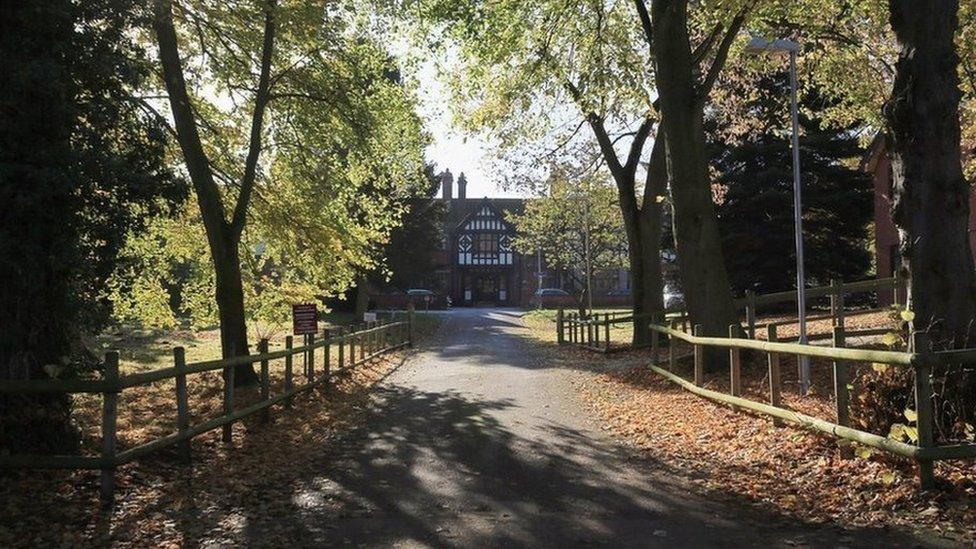
Bryn Estyn near Wrexham: the scene of horrific physical and sexual abuse against children
The Macur review is the latest in a long line of inquiries, reports and investigations into sexual and physical abuse at north Wales children's homes in the 1970s and 80s.
Here BBC Wales examines how the allegations first came to light and how they were handled by the authorities.
The birth of a scandal
Even before a major police investigation in 1991, there had been growing concern about allegations of abuse in children's homes across north Wales.
Care workers in the former county of Clwyd had been convicted of sex abuse as long ago as 1976.
In 1986, Alison Taylor, head of a children's home in Gwynedd, approached a local councillor about alleged assaults against children in care.
A police investigation followed but the CPS said no criminal proceedings would be justified.
Ms Taylor was sacked but she continued to make a noise, taking her concerns to government and the media.
Over the next few years, she compiled a dossier detailing complaints relating to children in care in Gwynedd and Clwyd. In June 1991, she presented it to Clwyd County Council.
This, coupled with the fact that between 1987 and 1991, three men had been jailed for sex offences against children in care in Clwyd, prompted the council to act.
It wrote to North Wales Police requesting an investigation, which was later extended to children's homes in Gwynedd.
The first police response
Between 1991 and 1993, North Wales Police took 3,500 statements from about 2,500 potential witnesses.
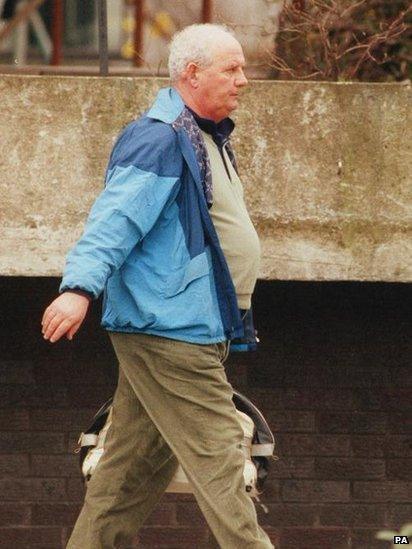
Peter Howarth, former deputy head of Bryn Estyn, jailed in 1994 for abusing boys as young as 12
The police recommended 20 suspects should be prosecuted.
In the end only eight former care workers were charged.
Seven were convicted, including the former deputy head of Bryn Estyn, Peter Howarth, who died three years into a 10-year jail sentence and John Allen, founder of the Bryn Alyn Community of private residential schools, who was sent to prison for six years.
Meanwhile, Ms Taylor campaigned for a public inquiry; questions were asked in the House of Commons and speculation over more widespread abuse continued.
The Jillings Report
In 1994 Clwyd County Council commissioned former Derbyshire social services chief John Jillings to conduct an internal investigation.
The so-called Jilllings report was completed in 1996 but it was shelved on the advice of lawyers, for fear it might prompt libel actions and a rash of compensation claims.
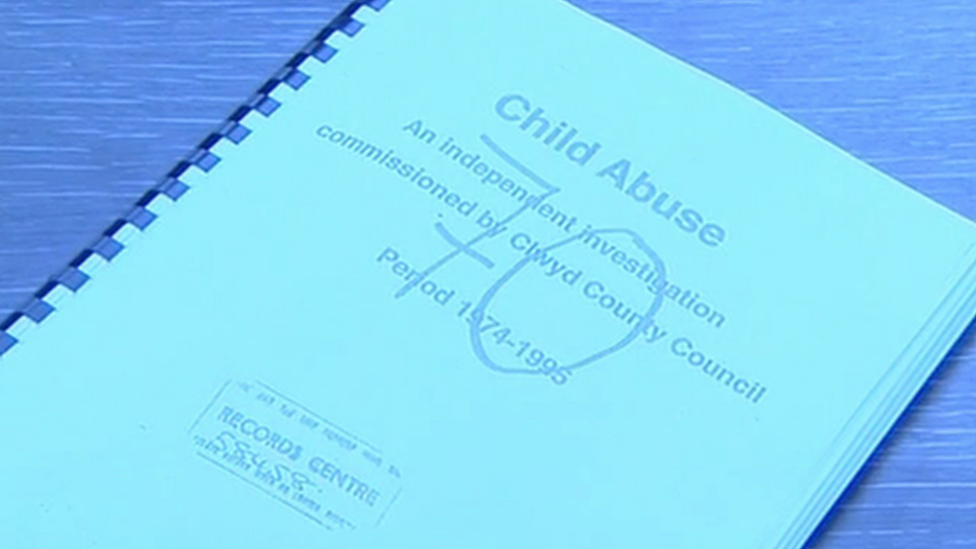
The Jillings report: completed in 1996, published in a heavily redacted form in 2013
The 300-page report was eventually published - in a redacted form - in 2013, following a Freedom of Information request by the BBC.
It noted evidence of "extensive" abuse taking place over "a substantial number of years".
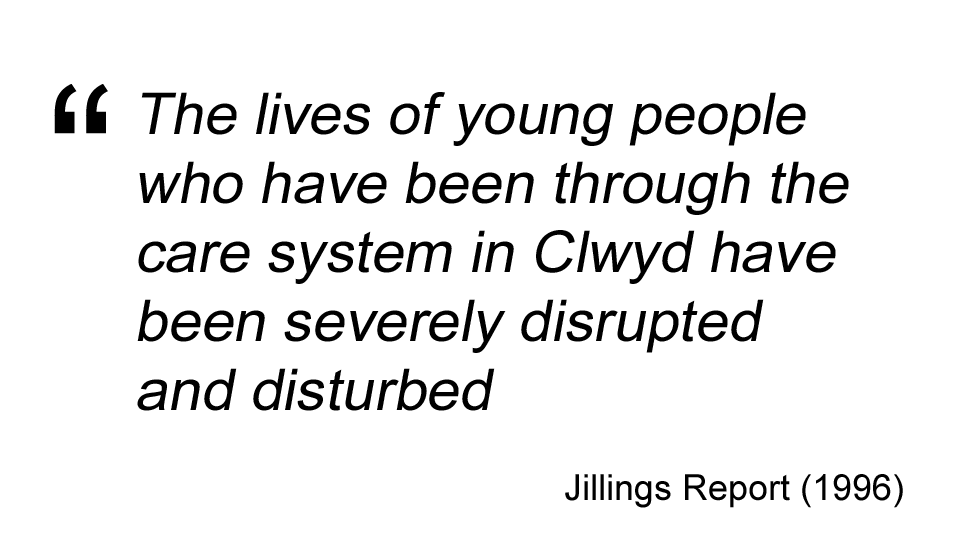
There was also criticism of how the authorities had dealt with complaints of abuse, branding their response "too little and too late".
The road to Waterhouse
In May 1995, while the ill-fated Jillings report was still being compiled, the Welsh Office appointed Nicola Davies QC to conduct a separate investigation into the abuse allegations and to examine the need for a full judicial inquiry.
Seven months later, she concluded that such an inquiry would not be in the public interest.
But she did recommend that a detailed examination of the practices and procedures of the social services departments in Clwyd and Gwynedd should take place.
The subsequent report - written by former Birmingham social services director Adrienne Jones and published in 1996 - revealed further failures in child protection.
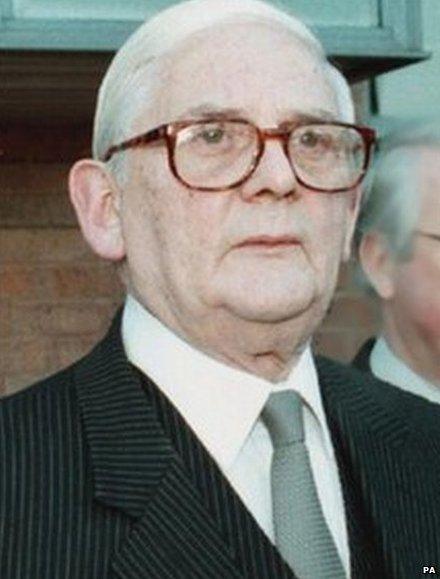
Sir Ronald Waterhouse - tasked in 1997 with conducting the country's biggest ever inquiry into child abuse
Declaring that the Government was "determined that there should be no cover-up of events in the past" the then Welsh Secretary William Hague announced a full public inquiry.
High Court Judge Sir Ronald Waterhouse was put in charge.
The results of the Waterhouse Inquiry
The £13m inquiry took evidence from more than 650 people.
Its report, "Lost In Care" was finally published in 2000, three years after it began.
It contained 700 allegations of abuse involving 170 individuals.
Sir Ronald found there had been "appalling mistreatment" of children over a period of 20 years.
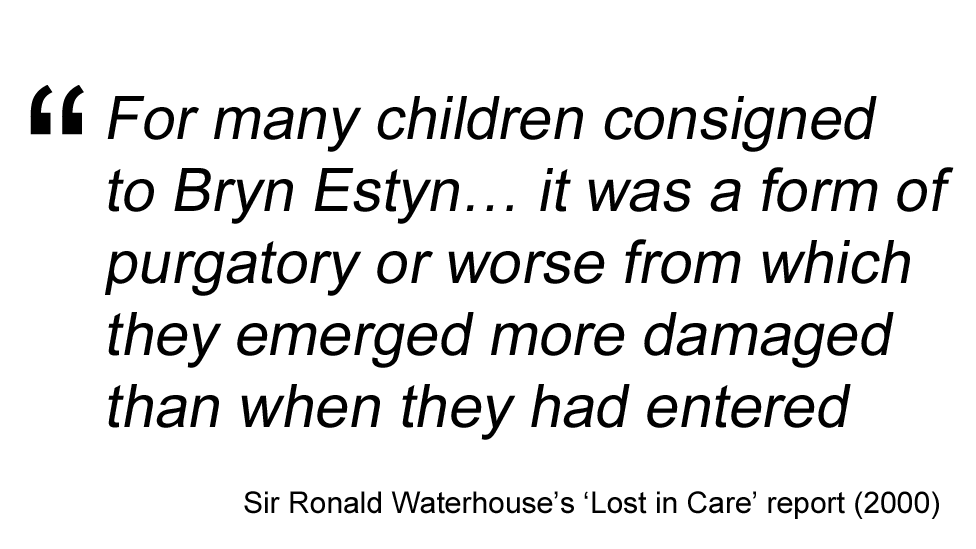
The report found that a paedophile ring did exist in the Wrexham and Chester areas, with adult men targeting boys in their mid-teens, particularly those in care.
But it said the inquiry had had seen no evidence that prominent public figures were involved in the ring.
Sir Ronald also said Alison Taylor's allegations were "substantially vindicated" and noted that without her complaints, there would not have been any inquiry into the alleged abuse of children in care in Gwynedd.
A total of 72 recommendations were made as a result of the inquiry.
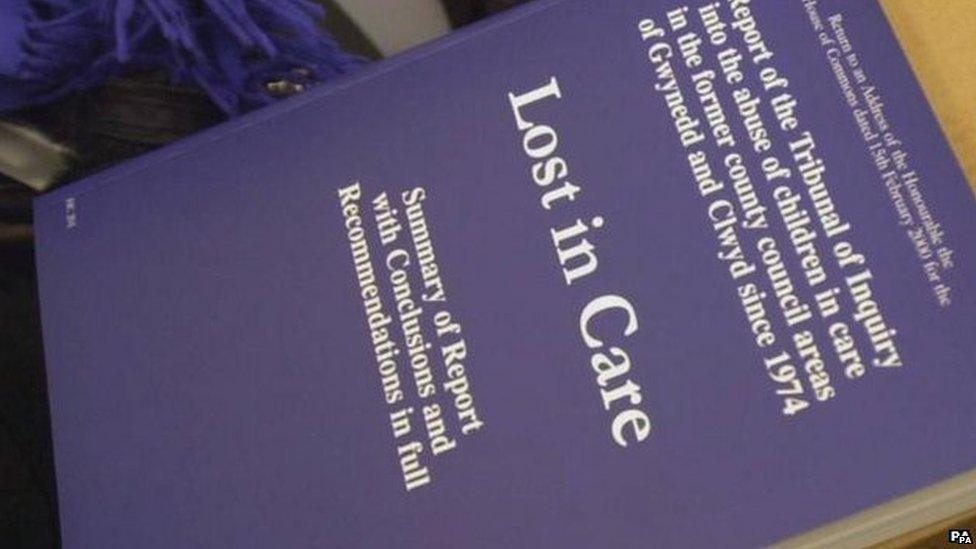
Sir Ronald Waterhouse's 2000 report: following its publication, 140 victim compensation claims were settled
These included the creation of Wales's first Children's Commissioner - which took place in 2001, the implementation of whistle-blowing procedures, allowing social workers to visit children in their care every eight weeks and a nationwide review of the needs and costs of children's services.
Further allegations
The Waterhouse report was supposed to draw a line under events which blighted the lives of so many young people.
But even at the time, critics said its remit was too limited.
The major concern lay with an order which banned the identification of 28 alleged abusers.
Clwyd South MP Martyn Jones called the report a "whitewash".
More than a decade later, in the wake of the Jimmy Savile scandal, allegations of a cover-up emerged once again, when former Bryn Estyn resident Steve Messham said the full scale of the abuse was not uncovered by the Waterhouse report.
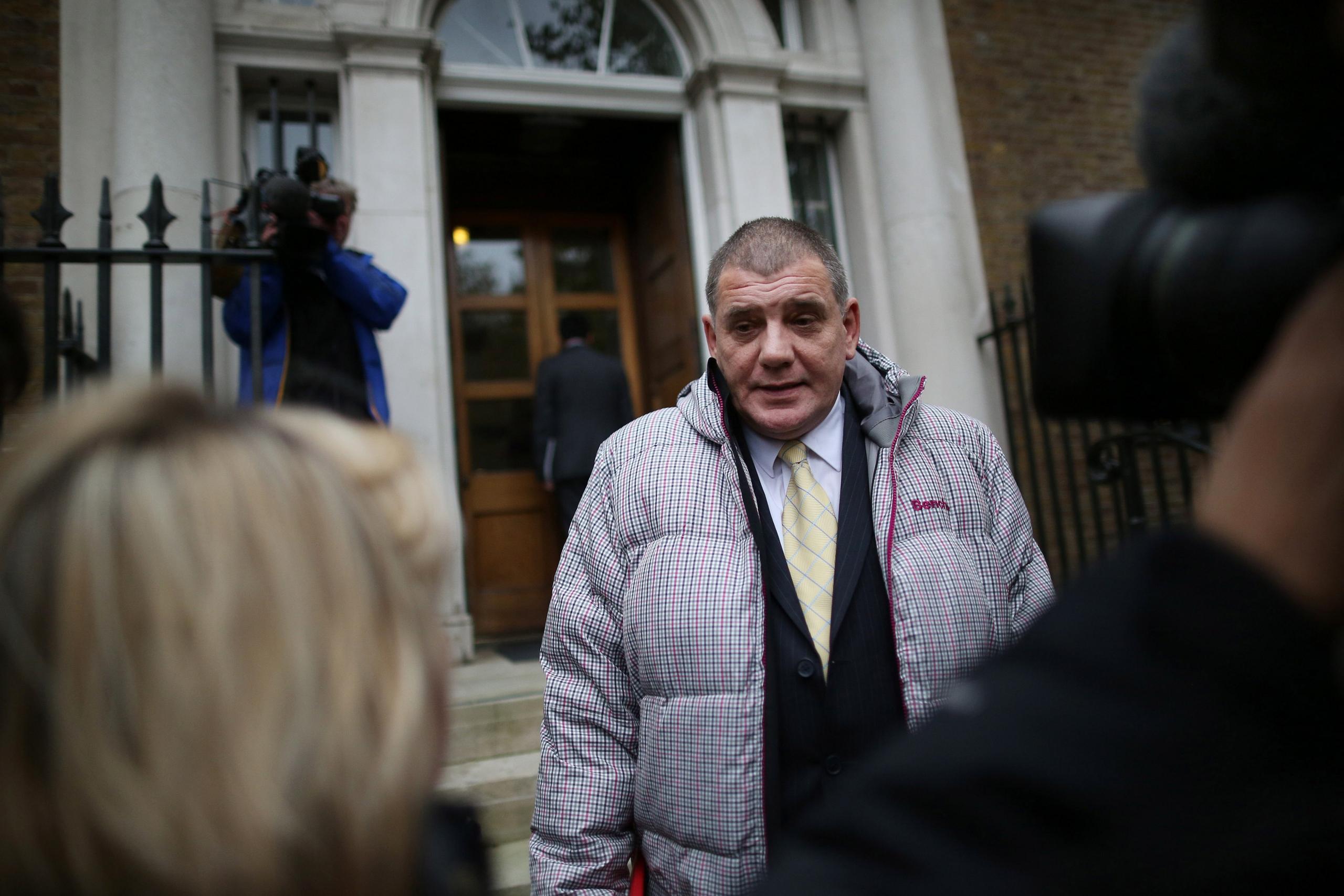
Former Bryn Estyn resident Steve Messham in 2012: he claimed the Waterhouse Inquiry did not go nearly far enough
Previously abusers identified by Mr Messham had been convicted for their offences.
In November 2012 a Newsnight programme reported him saying that a Conservative politician from the Thatcher era abused him a number of times.
Although not named by the programme, this led to incorrect speculation on the internet that the man in question was former Tory treasurer Lord McAlpine.
The peer denied the reports describing them "wholly false and seriously defamatory".
Mr Messham later said police at the time had showed him a picture of his abuser but incorrectly told him the man was Lord McAlpine.
The BBC issued an unreserved apology for the Newsnight report which led to Lord McAlpine being wrongly implicated in the alleged abuse.
Director General George Entwistle resigned as a result of the error.
Government action
In the wake of these fresh claims and the suggestion of an establishment cover-up, Home Secretary Theresa May announced two new inquiries.
One was the Macur review - its remit was to look at the scope of the Waterhouse Inquiry and determine whether any specific allegations of child abuse falling within the inquiry's terms of reference were not investigated.
The other was Operation Pallial, an independent National Crime Agency investigation charged with looking into new allegations and reviewing the historic police investigations.
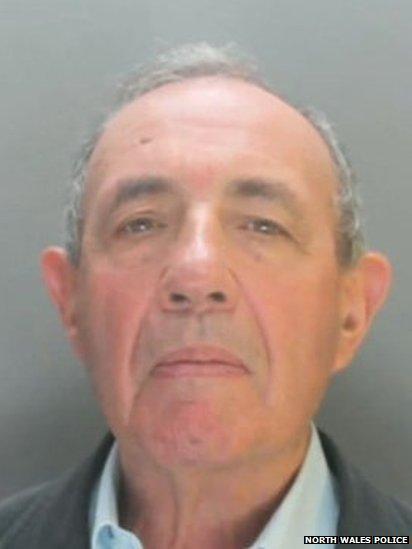
Former Bryn Alyn Community boss John Allen: jailed for life in 2014 for a catalogue of abuse against boys in his care
To date, Operation Pallial has been contacted by 334 people about child abuse in north Wales.
Seven people have been convicted to date, including Bryn Alyn boss John Allen, who was jailed for life, and five members of a predatory paedophile ring, who received a total of 43 years in jail.
A total 102 complaints are being actively investigated and two more trials have been set for 2016, with further trials expected to follow.
- Published17 March 2016
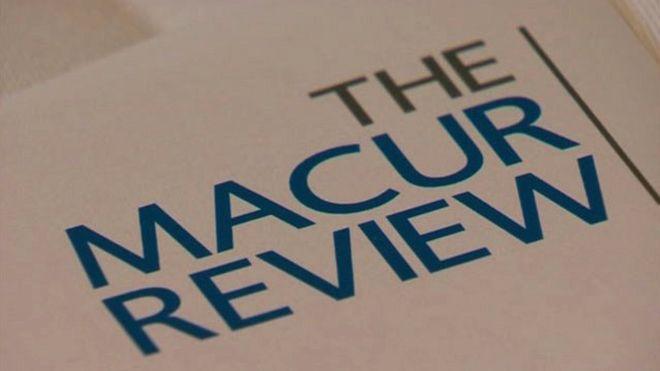
- Published11 December 2015
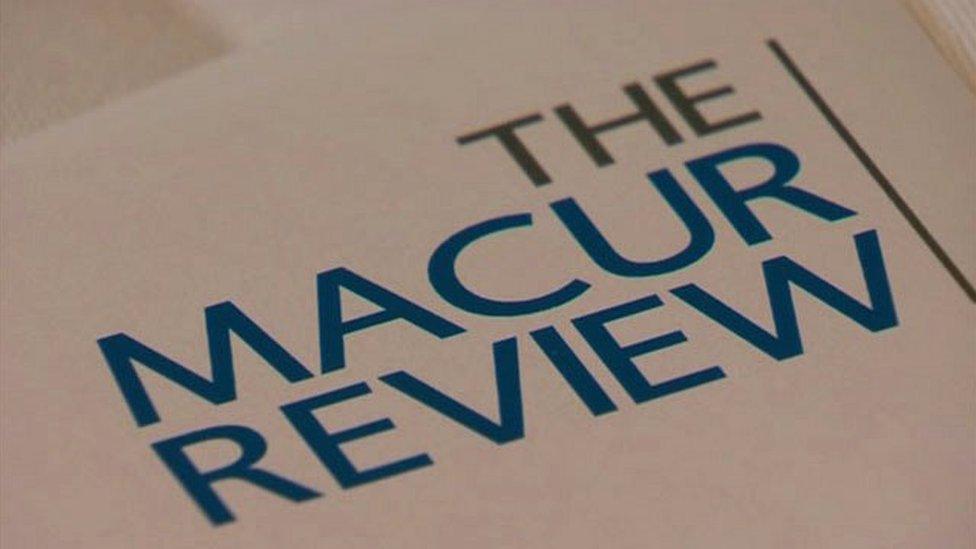
- Published25 January 2016
